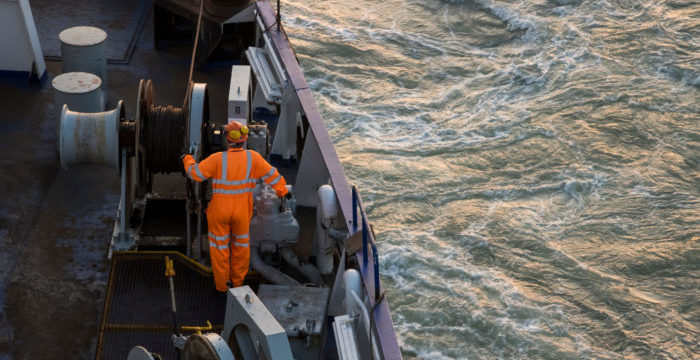With the much-debated IMO 2020 regulation taking effect in less than a month, maritime professionals’ union Nautilus International issued a warning over a potential new wave of seafarer criminalization.
The IMO’s 2020 regulation speculates that ships must run on fuel containing no more than 0.5% m/m of sulphur unless there is a scrubber installed. Within designated emission control areas (ECAs), the limit will remain at 0.10%.
The Union has been told by members that many seafarers are increasingly alarmed by the prospect of being scapegoated for problems through no fault of their own, linked to the 0.5% sulphur cap. Penalties for non-compliance with the new 0.5% limit will include big fines or lengthy jail sentences in some countries, as well as ship detentions.
Whilst we firmly support the moves to improve the shipping industry’s environmental performance, it’s clear that IMO 2020 is imposing a massive new burden on seafarers, both in terms of workload and in their exposure to potentially huge fines and criminal convictions,
…commented Nautilus professional and technical officer David Appleton.
Just over a year ago, in the first case of its kind, France fined the master of the P&O Cruises vessel Azura €100,000 for using fuel that was 0.18% over the sulphur content limit, setting a precedent for criminalizing masters for the quality of fuel on their vessels.
Nautilus members have also highlighted a range of safety and operational concerns, including incidents of power loss when changing fuels, lubrication issues, filter problems and leaks.
Fuel change-overs have created considerable extra workloads, with engineers needing to take special care to deal with such challenges as contamination, compatibility, stability, viscosity and lubricity, combustion and ignition qualities, cat fines, cold flow properties, and flash points.
It’s essential that shipping companies do all they can to provide their masters, officers and crews with the training and resources required to ensure compliance with the new rules. These are complex requirements, with complex and varied enforcement mechanisms, and our members need to be protected against the threat of legal proceedings arising from inadvertent infringement of the rules,
…he added.
The warning follows a Nautilus Federation report, which earlier this year revealed that almost 90% of seafarers are concerned about criminalization in the industry and two thirds said it impacted on the way they felt about working in shipping.





























































